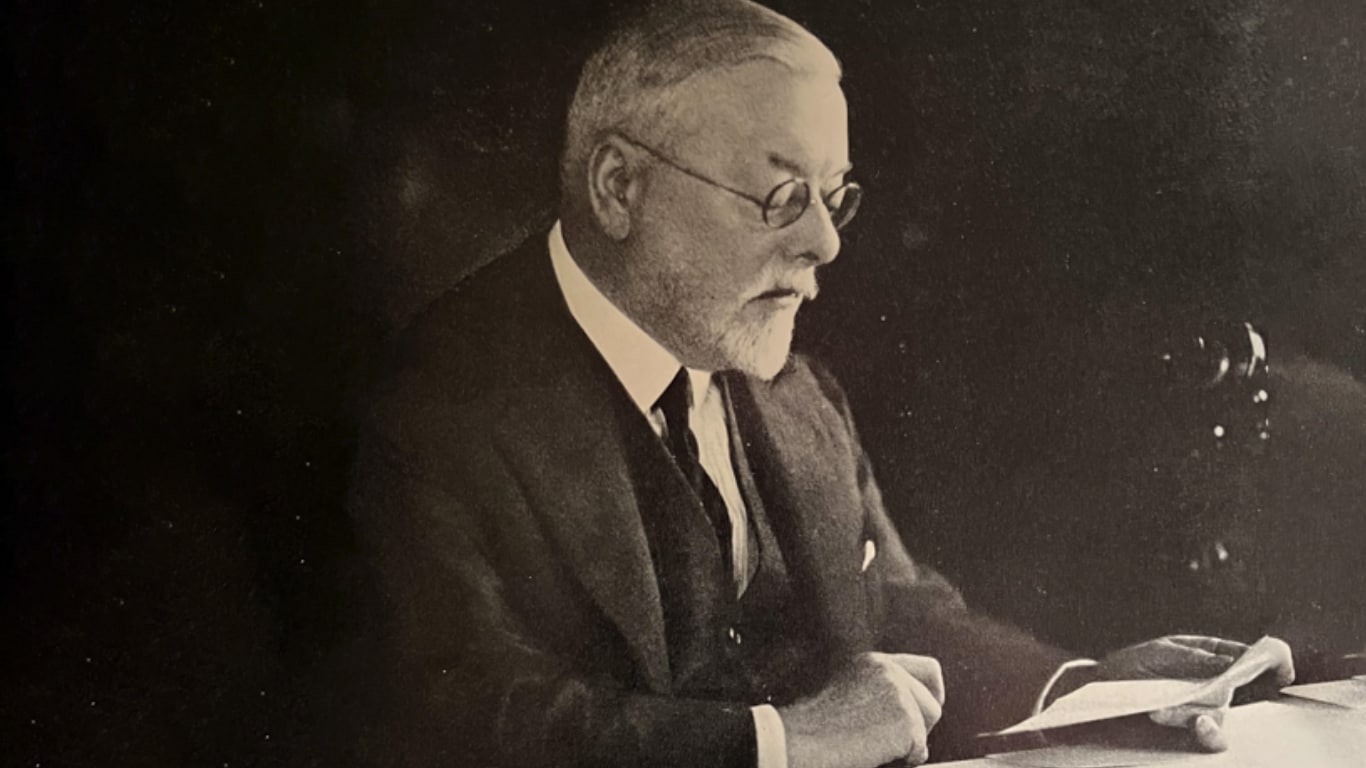

175 years of PwC
William Plender, later Baron Plender of Sundridge
William Plender was not only a senior partner of one of PwC’s key legacy firms, but also a public servant. He was with the firm from 1883 to 1946.
Background
William Plender was born in 1861 and attended Newcastle’s Royal Grammar School, before accepting an offer of employment from John Griffiths for £100 per annum (approximately £15,000 in today’s terms). He chose this offer over another more lucrative offer of £2 per week, as he felt that it was a “more gentlemanly” offer.
He had a stellar career in accountancy - he qualified in 1883 and was one of the first members of the ICAEW to be admitted by exam (rather than being a member by virtue of being added to the Royal Charter). He became senior partner of Deloitte, Plender Griffiths and Co, which merged to become Deloitte, Haskins and Sells, and then in 1990 Coopers and Lybrand Deloitte.
His achievements were so much wider than accountancy, and included acting as the Treasury Controller for the German, Austrian and Turkish banks confiscated during World War I, the financial adviser to the Board of Trade in 1918 and, as one of the “most reliable and important accountants” in England, as an expert witness in the 1931 Royal Mail case. This case was a noted English criminal case, in which the director of the Royal Mail Steam Packet Company was convicted of falsifying a trading prospectus to present the company as profitable and entice investors. It led to provisions in the Companies Act 1947 that changed the way in which companies were audited, as well as changing the approach of auditors from that of fulfilling their legal duty, to using their ethical and moral judgement.
Lord Plender was President of the ICAEW three times, from 1910 - 1911, 1911 - 1912, and from 1929 - 1930. He was knighted in 1911, became a baronet in 1923, and was elevated to the peerage as Baron Plender of Sundridge in 1931. He died in 1946 and a tribute in The Accountant magazine described him as “an outstanding figure in the world of accountancy” whose contribution to the profession was “hard to exaggerate”.
What advice would you give your younger self?
Whilst we have no record of the advice that he would give his younger self, we know that in 1919 he advised pupils at his old school that, whatever career they chose, they should “strive to excel in it”, devote “evening leisure … to advantageous study”, and avoid “the tendency to drift into shiftlessness and indifference”.
“The foundation of success is character, both in individual and national life. Much learning you may get, brilliancy may be counted among your possessions; but the simpler qualities of industry, integrity, self-restraint, and tenacity of will form the foundations which, as a rule, are more lasting than the former gifts, great as they are.”
- from an address by Lord Plender to the Chartered Accountant Student’s Society of London in 1922


















